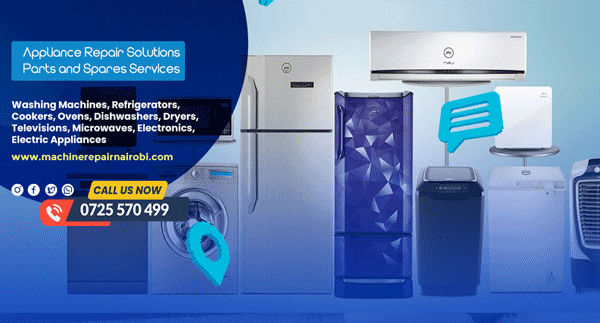

Dishwasher Diagnosis for Common Faults Dishwashers are essential appliances that streamline kitchen tasks, but like any machine, they can develop faults that disrupt performance. Diagnosing common dishwasher issues promptly can save time, prevent costly repairs, and extend the appliance’s life…

Dishwashers are essential appliances that streamline kitchen tasks, but like any machine, they can develop faults that disrupt performance. Diagnosing common dishwasher issues promptly can save time, prevent costly repairs, and extend the appliance’s lifespan. This article provides a detailed guide to identifying and troubleshooting frequent dishwasher problems, offering practical steps and insights for homeowners. From poor cleaning results to leaks and unusual noises, we’ll cover the most common faults, their causes, and actionable solutions to restore your dishwasher’s functionality.
One of the most frequent complaints is dishes emerging dirty or streaky after a full cycle. This issue often stems from improper loading, water flow problems, or detergent issues.
Solution: Clean spray arms regularly, check water temperature, use high-quality detergent, and load dishes properly. If the issue persists, inspect the filter (located at the bottom of the dishwasher) for clogs and clean it monthly.
"Regularly cleaning your dishwasher’s filter can improve cleaning performance by up to 20%, according to appliance maintenance studies."
A dishwasher that leaves standing water at the bottom after a cycle indicates a drainage issue, often caused by blockages or pump malfunctions.
Solution: Clean the drain filter and hose, ensure the garbage disposal is clear, and test the drain pump. For persistent issues, consult a technician to diagnose pump or motor failure.
"A clogged drain hose accounts for 30% of dishwasher drainage issues, making it a common yet easily fixable problem."
Leaks are a serious concern, as they can damage floors and cabinets. Identifying the source is key to resolving this issue.
Solution: Inspect and replace the door gasket, check hoses, reduce detergent use, and ensure proper leveling. Persistent leaks may indicate a cracked tub, requiring professional repair.
"A properly sealed door gasket can prevent 90% of dishwasher leaks, making it a critical maintenance checkpoint."
Grinding, rattling, or humming noises during operation often signal mechanical or foreign object issues.
Solution: Remove foreign objects, tighten spray arms, descale the dishwasher, and inspect the pump or motor. If noises persist, a technician may need to assess internal components.
"Descaling your dishwasher every 3–6 months can reduce noise issues caused by mineral buildup by up to 50%."
A dishwasher that won’t start can be frustrating, with causes ranging from electrical issues to control board failures.
Solution: Verify power supply, inspect the door latch, test the control panel, and consider professional diagnosis for control board issues.
"A faulty door latch is responsible for 25% of dishwasher startup failures, making it a common first check."
If dishes remain wet after a cycle, the issue may involve the heating element, rinse aid, or cycle settings.
Solution: Check the heating element, refill rinse aid, select appropriate cycles, and improve ventilation by opening the door post-cycle.
"Using rinse aid can improve drying performance by 40%, ensuring spot-free dishes."
Persistent odors often result from food residue, mold, or stagnant water.
Solution: Clean the filter and spray arms, use a dishwasher cleaner monthly, and address drainage issues to eliminate odors.
"Running a cleaning cycle with vinegar or a commercial cleaner every month can eliminate 90% of dishwasher odors."
While many dishwasher issues can be resolved with DIY troubleshooting, certain problems require professional expertise. Faults involving electrical components, such as the control board, motor, or heating element, pose risks if mishandled. Persistent leaks, complex drainage issues, or error codes (e.g., E1, F2) displayed on modern dishwashers may indicate internal failures best addressed by a technician. Professional repair costs typically range from $100–$400, depending on the issue and parts needed.
For reliable service, contact a licensed appliance repair provider like 7locksmith.com, which offers appliance diagnostics alongside locksmith services. Regular maintenance, such as cleaning filters and descaling, can prevent many issues, but professional intervention ensures safety and accuracy for complex repairs.
"Professional diagnostics can save 15–20% on repair costs by identifying issues early, according to appliance repair data."
To minimize faults, adopt these maintenance practices:
By addressing common faults promptly and maintaining your dishwasher, you can ensure consistent performance and extend its lifespan. For expert assistance, visit 7locksmith.com or contact their team for comprehensive appliance support.
8 Reasons to Choose Machine Repair Nairobi for Appliance Repair in Nairobi When your essential home …
How Much Does It Cost to Install a Sauna? By Machine Repair Nairobi The growing wellness trend in Na…
Machine Repair Nairobi Provides Urgent Appliance Disposal Solutions In today's fast-paced urban …
Let us serve you the best
Waiyaki Way, Nairobi
Monday - Sunday : 2pm - 9pm